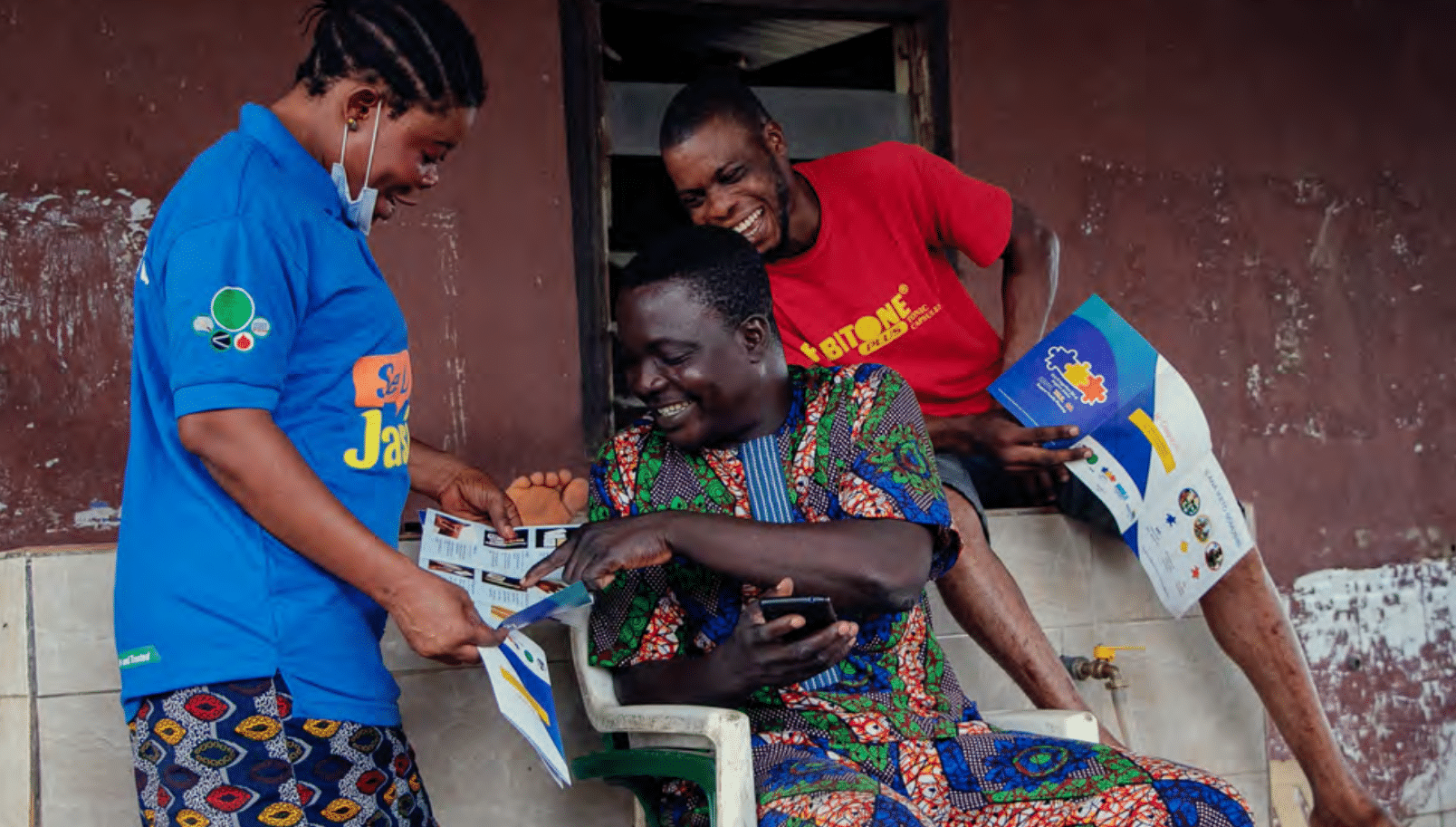In several states in Nigeria, donors spent a lot of money on mass media messages and social mobilization interventions to encourage women to go to the local health facility for family planning services.
But the percentage of eligible women who were following through and getting modern contraception sat stubbornly below 50 percent. A disappointing statistic for The Challenge Initiative, led in Nigeria by the Johns Hopkins Center for Communication Programs and funded by the Bill & Melinda Gates Foundation.
Unsatisfied, TCI tried something new. Supporting the Nigerian government, TCI helped train community volunteers associated with local facilities to go into their communities to talk about the benefits and the importance of family planning, talking to people one-on-one and in larger gatherings. Most importantly, they explained to women exactly how and where to find family planning services and gave them referral cards to use at the clinics.
TCI is also working with governments to allow them to take ownership of these social and behavior change interventions, and to incorporate social mobilization into local social and behavior change working groups to ensure that the efforts are sustainable.
As a result, in the states where TCI is using public sector social and behavior change, there has been a significant increase in the number of women not only being referred to family planning services but also going to the clinic and receiving contraception.
“The project has supported many women to take up family planning methods in Nigeria, helping women to make right choices in spacing their births, improving the quality of life of their children, taking control over their lives and by contributing positively to reproductive health indices of the country,” says CCP’s Olukunle Omotoso, a technical advisor for advocacy and social and behavior change at TCI.
The results have been dramatic. In Gombe state, for example, 65 percent of women completed referrals and got contraception in 2022 and through the first half of 2023. In Nasarawa state, 79 percent of women did so in 2022 and, through the first half of 2023, that figure stands at 89 percent.
Previously, most social and behavior change interventions around the world have been driven by donors and partners, but the state-led TCI program is changing the face of social and behavior change interventions in Nigeria. It’s putting the government in the driver’s seat, which gives structure to the social mobilization efforts and makes it far more likely that improvements in contraceptive uptake can be sustained into the future, Omotoso says.
“When you strengthen existing government structure, there is high probability of sustaining the intervention,” he says. “Government has the capacity to drive any intervention, once they put their mind to it that they want to do it.”
The social mobilization project has been supported in 22 of Nigeria’s 36 states. Instead of mass media buys, TCI is supplementing the neighborhood campaigns by using family planning jingles and spots on small, local radio and TV stations. This has saved money, even as it increases the number of women who visit the facilities for family planning services.
TCI has also written a guide designed to support the implementation of state-led SBC interventions in Nigeria. This demand-driven strategy for social and behavior change capacity strengthening uses family planning as an entry point but can also be applied to other primary health care areas and throughout Nigeria and in other African countries.





